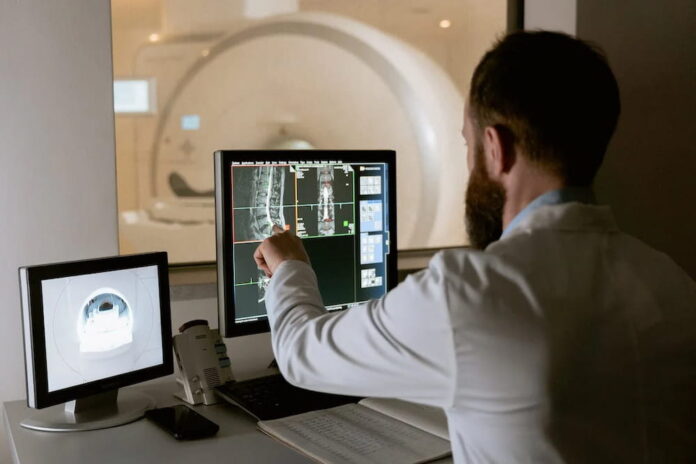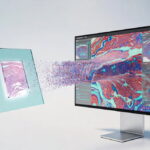Like all industries, healthcare is constantly evolving as well. As we move further into the 21st century, the role of technology in hospitals becomes increasingly vital. Hence, modernizing your hospital for 2024 and beyond is not just about improving efficiency and patient care. It’s also about staying competitive in an ever-changing landscape.
Today, we will explore a few technologies that will modernize your hospital or healthcare facility and enable them to provide better patient care.
#1 Remote Patient Monitoring
As reported by the American Medical Association, the COVID-19 pandemic accelerated the adoption of remote patient monitoring. Remote patient health monitoring has now become an essential technology for any modern hospital and the healthcare industry in general.
With the help of remote patient monitoring software, healthcare providers can connect patients virtually. They can then provide patient care, consultation, and monitoring without the need for physical presence.
According to CoachCare, this technology offers several advantages. These include improved access to care and patient data, reduced wait times, and the ability to reach patients in remote areas. Besides, remote monitoring is particularly valuable for managing chronic conditions and follow-up care.
Patients can transmit vital signs, such as blood pressure, heart rate, and glucose levels, to their healthcare providers through mobile devices or wearable technology. This enables doctors to monitor patients’ health in real time, intervene when necessary, and make data-driven decisions about their treatment plans.
#2 Electronic Health Records (EHR) Systems
There’s no doubt that a virtual patient management platform is vital to monitor patients in a modern hospital. However, there’s a way to enhance the functionality of these platforms, and that’s through Electronic Health Records (EHR) systems.
The adoption of EHR systems is a fundamental step in modernizing hospitals. EHRs replace traditional paper-based medical records, streamlining the collection, storage, and retrieval of patient information. They provide a comprehensive and secure way to manage patient data, making it accessible to authorized healthcare professionals whenever and wherever it is needed.
According to Northeastern University, EHR systems offer several advantages, like improved patient safety through error reduction, faster and more accurate diagnosis, and so on. They contribute to better coordination of care, as multiple departments within a hospital can access the same patient record, reducing redundancies and enhancing efficiency.
#3 Internet of Things (IoT) in Healthcare
The Internet of Things (IoT) has made significant inroads into healthcare by connecting medical devices and equipment to the internet. These devices can continuously monitor patient vital signs, track medication adherence, and ensure the safety and efficiency of hospital equipment.
Wearable devices, such as smartwatches and fitness trackers, are becoming increasingly common for patient monitoring. They can track a wide range of metrics, including heart rate, sleep patterns, and physical activity, providing valuable insights into a patient’s health. In a hospital setting, IoT-enabled devices can also be used to track the location and status of medical equipment.
#4 Robotics and Automation
Robotic technology is transforming various aspects of healthcare, from surgery to patient care and logistics. In surgery, robotic-assisted systems offer enhanced precision and control, allowing surgeons to perform complex procedures with minimal invasiveness. Robots can also assist in rehabilitation and physical therapy, providing consistent and personalized exercises for patients.
Robots can also be deployed for tasks such as medication delivery, sterilization, and even routine cleaning in hospitals. Automation, on the other hand, can help reduce errors, enhance efficiency, and free up healthcare professionals to focus on patient care. Together with robotics, these types of technologies are leading the charge toward the much-needed modernization of our healthcare facilities.
#5 Blockchain for Health Data Security
Health data security is a paramount concern in modern healthcare, with the need to protect patient information from breaches and unauthorized access. According to Forbes, blockchain technology has emerged as a powerful solution for enhancing the security and integrity of health records.
Blockchain is a distributed ledger system that records transactions in a secure and immutable way. In healthcare, it can be used to create a tamper-proof record of patient data, ensuring that it cannot be altered without proper authorization. This technology can also enable patients to have more control over their health data, determining who has access to their records and when.
By implementing blockchain technology, hospitals can enhance patient trust, comply with data protection regulations, and minimize the risk of data breaches.
Conclusion
As we head into 2024, we come across a growing demand for modern facilities at hospitals. Hence, healthcare facilities must be willing to adopt these technologies and transform themselves accordingly. Delaying this transition towards modernization is something these facilities can’t afford to do at the moment.
Did you find this article helpful? You can check out our website for more awesome content like this.
Read Also
- Automated Healthcare Software Solutions: How Intelligent Platforms Are Redefining Clinical, Administrative, and Operational ExcellenceThe healthcare industry is undergoing a seismic transformation. Rising patient volumes, value-based care models, staffing shortages, and complex regulatory demands have prompted organizations to look beyond traditional tools and embrace advanced software automation. As providers search for innovative partners capable of tailoring these sophisticated systems to real-world workflows, many turn to MCSI (Managed Care Systems,… Read more: Automated Healthcare Software Solutions: How Intelligent Platforms Are Redefining Clinical, Administrative, and Operational Excellence
- Why Whole Slide Imaging Shapes the Future of Digital PathologyWhole slide imaging has become one of the most important developments in modern pathology. It changes how tissue is examined, how cases are shared and how pathologists collaborate with the wider care team. More than a technological upgrade, it represents a shift in how laboratories think about their workflow, their storage needs and the tools… Read more: Why Whole Slide Imaging Shapes the Future of Digital Pathology
- Comparing 2025 Dental Practice Management Software OptionsSoftware Key Strengths Potential Limitations Best For Dentimax • Offers both cloud-based and on-premise/server deployment. • Tight integration between imaging (e.g. X-ray sensors) and practice management, charts, treatment planning, imaging all in one. • Transparent pricing and relatively simple UI/usability; solid for small to medium general practices. • May lack some of the… Read more: Comparing 2025 Dental Practice Management Software Options
- Top Innovations in Dermatology and Skincare TechnologiesHave you ever wondered how skincare keeps getting better year after year? From fighting acne to reducing wrinkles, today’s treatments seem more advanced than ever before. The tools and techniques used by dermatologists today are smarter, safer, and more effective than those we had just a few years ago. These breakthroughs don’t just help with… Read more: Top Innovations in Dermatology and Skincare Technologies
- Telehealth and Beyond: Building a Connected Continuum of CareHealthcare is on the verge of a radical transformation. Technology no longer simply supports medicine; it actively shapes how care is delivered and experienced. Achieving a seamless continuum demands more than deploying tools—it requires intentional design, coordinated teamwork, and innovative platforms that adapt to diverse clinical and patient needs. This article explores key strategies for… Read more: Telehealth and Beyond: Building a Connected Continuum of Care






